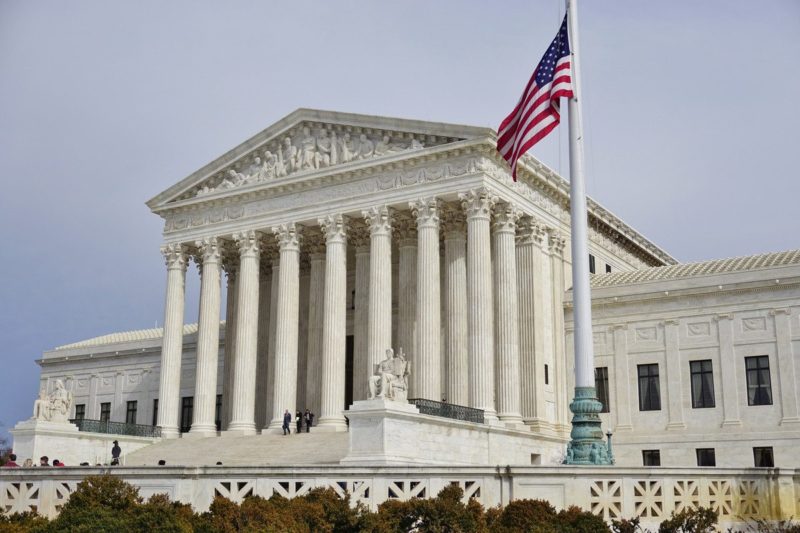Unanimous Supreme Court Upholds ‘One Person, One Vote’ Rule
Writing for the unanimous court, Justice Ruth Bader Ginsburg said Texas’ method of drawing districts based on total population was in line with “constitutional history, the court’s [previous] decisions and longstanding practice” of states drawing legislative districts based on total population.

The Supreme Court on Monday unanimously ruled against conservatives looking to upend the idea of “one person, one vote.” The Court held that a total population count could be used to draw state electoral districts.
The decision came in Evenwel v. Abbott, a case brought by the Project on Fair Representation (POFR), a conservative advocacy organization also behind challenges to affirmative action admissions policies such as Fisher v. University of Texas. Two voters, Sue Evenwel and Edward Pfenninger, claimed the current method for drawing legislative districts in their state of Texas diluted their voting power.
The plaintiffs in Evenwel argued that the use of total population count to draw legislative districts, which includes non-citizens, disenfranchised prisoners, and children, unconstitutionally diluted the votes of eligible voters. Instead, they argued, districts should be drawn based only on the total number of eligible voters. Civil rights advocates, who had closely watched the case, argued it was an attempt to increase the political power of white suburban and rural voters over urban districts, which tend to have a larger share of non-eligible voters and more voters of color.
Writing for the unanimous court, Justice Ruth Bader Ginsburg said Texas’ method of drawing districts based on total population was in line with “constitutional history, the court’s [previous] decisions and longstanding practice” of states drawing legislative districts based on total population. Adopting the approach argued by the Evenwel plaintiffs would “upset a well-functioning approach to districting that all 50 States and countless local jurisdictions have followed for decades, even centuries.”
“We are disappointed that the justices were unwilling to reestablish the original principle of one-person, one vote for the citizens of Texas and elsewhere,” said Edward Blum, president of POFR, in a statement following the decision. “The issue of voter equality in the United States is not going to go away. Some Supreme Court cases grow in importance over time and Evenwel v. Abbott may likely be one of those cases.”
Civil rights advocates applauded the decision. David Gans, director of the Human Rights, Civil Rights & Citizenship Program at the Constitutional Accountability Center, called the decision “a masterful originalist opinion” that lays groundwork for establishing that total population is the constitutional principal that states must use in drawing their electoral districts.
Despite some suggestions that the decision would benefit Democrats over Republicans in the current election cycle, advocates were quick to call the decision a win for democracy in general. “This is not a case about partisanship,” said Nina Perales, vice president of litigation for the Mexican American Legal Defense and Educational Fund (MALDEF), in a call with reporters. The idea that voters in one party would see positive consequences, she said, had “no basis in fact.”
“This case was going to affect millions of people regardless of their partisan leanings,” said Perales. “Children were going to be the largest group of people excluded from apportionment.” She noted MALDEF data showing that if the Supreme Court had sided with the Evenwel plaintiffs, conservative-voting suburbs outside of Houston and Dallas would be among the districts with the greatest reduction in apportionments.
“Government actions affect everyone, not just eligible voters,” said ACLU Legal Director Steven R. Shapiro in a statement following the decision. “The argument that states are forbidden from treating everyone equally for redistricting purposes never made any constitutional sense.”
